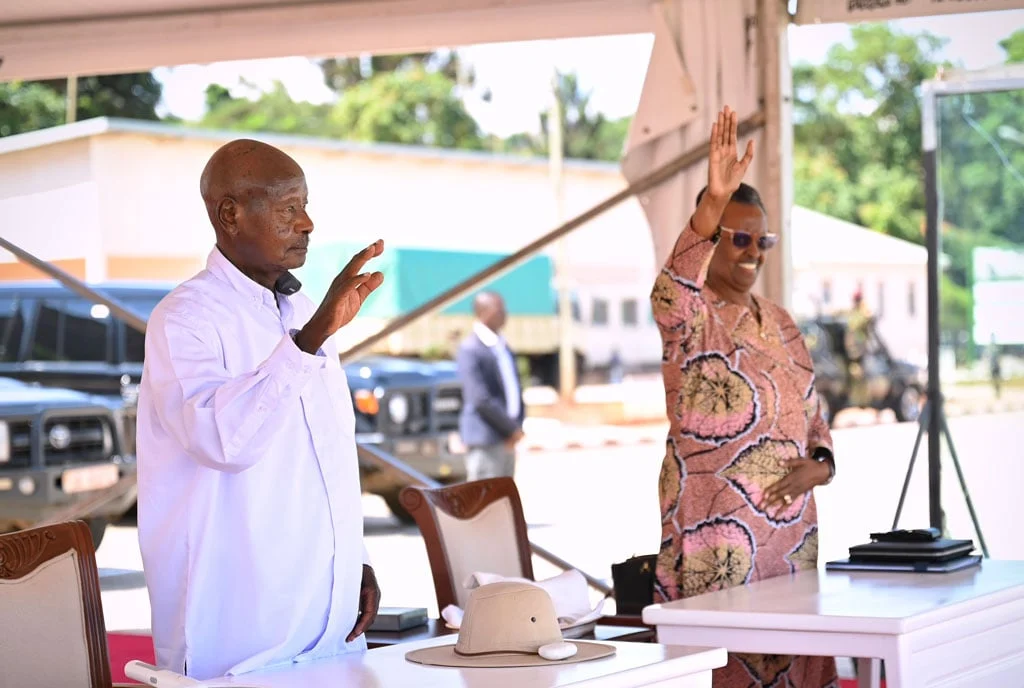State House Defends Museveni Apology, Urges Ugandans to Forgive Without Conditions

A senior presidential aide has called on Ugandans to stop attaching conditions to the recent public apology offered by President Museveni and First Lady Janet Museveni, insisting that the gesture was voluntary and should be accepted in good faith.
Faruk Kirunda, Deputy Presidential Press Secretary, made the appeal in a post on X (formerly Twitter) following days of mixed reactions to the First Couple’s unprecedented apology to the Baganda community.
The apology was delivered during a national prayer service held earlier this week at Kololo Ceremonial Grounds, where President Museveni and the First Lady asked the Baganda to forgive them for mistakes made over the last 40 years.
The move was mirrored by ruling NRM leaders in parts of Northern, Eastern, and Luweero regions, further fuelling speculation about its timing and intent.
In his statement, Kirunda defended the authenticity of the apology, warning critics against imposing expectations or preconditions for reconciliation.
“The duo apology given by HE Kaguta Museveni and First Lady Janet has elicited diverse commentaries with some of the reactions placing conditions for the apology to be ‘accepted’,” Kirunda wrote.
“Let’s be honest as Ugandans; the First Couple gave the apology on their own volition. Nobody saw it coming. Why then place demands on them?”
He argued that some of the demands being voiced relate to state responsibilities and should not be conflated with a moral gesture of remorse.
Without naming names, Kirunda suggested that those criticising the apology should reflect on their own conduct.
“Only God sees everything and accepts people's remorsefulness. Some of the demands being made on them are state responsibility… Those giving conditions should also apologise for their own mistakes, known and unknown, then we move on. The First Couple has given an example to emulate.”
The message from Kololo, where Museveni and Janet knelt in prayer and asked for forgiveness, has prompted intense public debate — with some interpreting it as a sign of humility and repentance, and others questioning whether it should lead to tangible changes in policy or governance.
Some cultural leaders, political figures, and social media commentators have responded to the apology with scepticism, asking whether it would be followed by redress for past injustices, particularly those affecting Buganda’s traditional structures, land issues, or political relations.
But Kirunda insisted the gesture should be seen as a step toward national healing and mutual respect rather than a transactional act.
“The apology was meant to extend goodwill to all as we forge a more harmonious and inclusive country. Nobody is perfect,” he said.
As the country continues to reflect on the significance of the apology, Kirunda’s comments mark the first formal defence from within the State House communications circle, highlighting the sensitivity of the gesture and its wide-ranging implications.



0 Comments